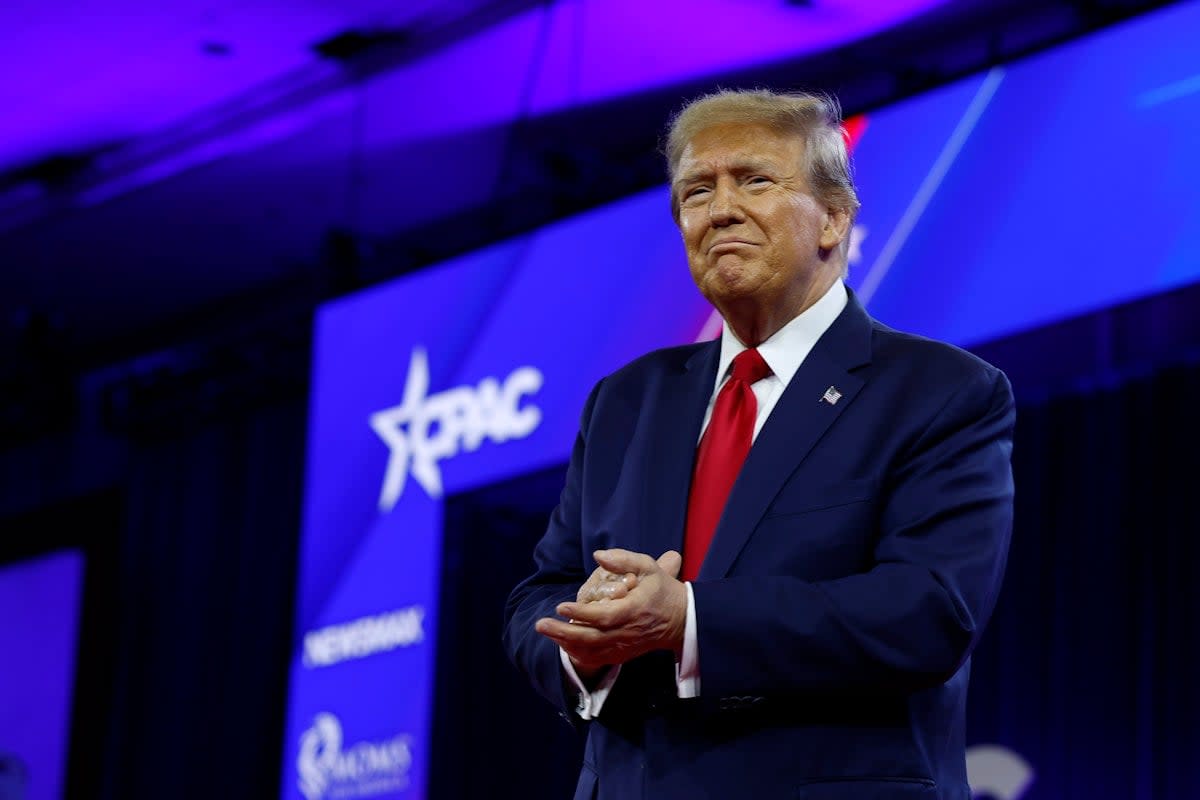Supreme Court Throws Huge Wrench Into Trump Trial Schedule

- Oops!Something went wrong.Please try again later.
The Supreme Court—with its three Trump-appointed justices—agreed Wednesday to weigh in on whether former President Donald Trump can claim presidential immunity to get out of his federal election interference trial.
The court announced in a brief order that it would hear arguments and issue a ruling on Trump’s presidential immunity claim. Until the Supreme Court does so, the January 6 trial is completely on hold, according to the order.
The high court agreed to expedite the case and hear arguments the week of April 22, more than a month after the Super Tuesday primaries. It’s not clear why the case is beginning in April. It could take months before we get an actual ruling—potentially by June at the earliest.
If the Supreme Court decides quickly to reject Trump’s bold immunity claim, it may permit a final trial on the 2020 election interference to occur later this summer or fall. But there’s no guarantee a final decision will actually come before November.
Former appeals court Judge Michael Luttig predicted that it is now probably “unimaginable” that Trump will be tried in special counsel Jack Smith’s federal election interference trial before the 2024 election.
Trump views the Supreme Court’s order on Wednesday as a win “for now,” one source told CNN.
Many legal experts do expect the Supreme Court to rule against Trump’s immunity claim, but Trump’s entire strategy in his legal cases thus far has been to delay, delay, delay. And the Supreme Court’s order Wednesday helps him do just that. The Supreme Court could have decided to weigh in on this case sooner, but by the time the federal election interference trial returns to Judge Tanya Chutkan’s court, Trump’s legal team could try a new excuse to get out of the whole thing: that it’s too close to an election to hear this case now.
The federal election interference trial was originally scheduled to begin on March 4, a date that certainly won’t happen now.
Trump has repeatedly tried to claim presidential immunity to get out of his federal election interference case. At one point, his legal team even tried to argue that a president would be immune from criminal prosecution if he ordered Seal Team 6 to assassinate a political rival, as long as Congress did not vote to impeach him first.
That argument didn’t hold up in a Washington, D.C., appeals court, which ruled earlier this month that Trump did not have “presidential immunity” when he tried to overthrow the 2020 election.
Trump’s first criminal trial, the New York hush-money case, is set to begin on March 25.

